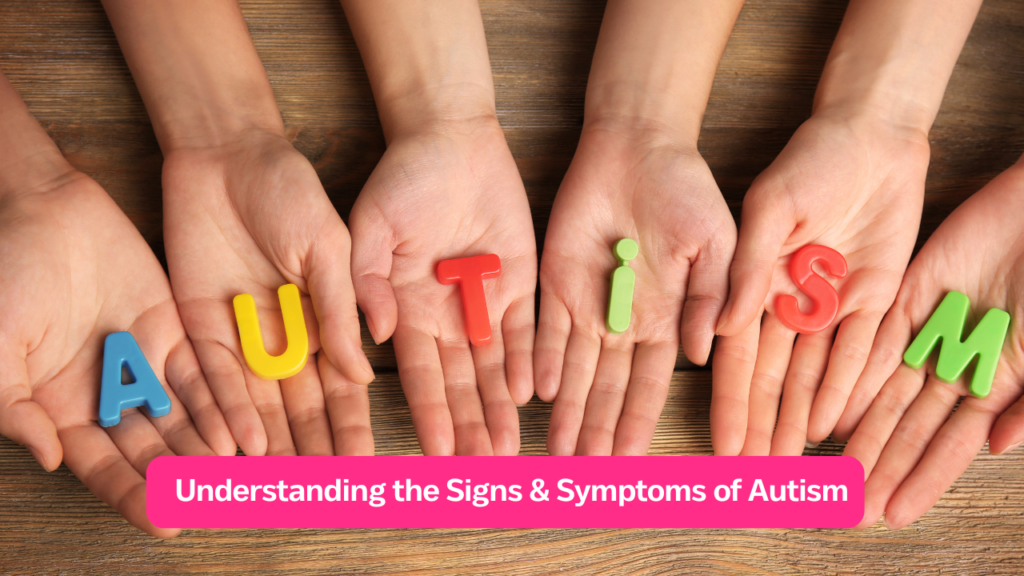As long as my children were diagnosed with autism, I understood very little how it really looked. Like many parents, I heard about autism, but I didn’t know the real one Signs and symptoms of autismEspecially in youthful children and youthful children.
I really believe that education is the key to consciousness and acceptance. This guide is here to aid you recognize Signs and symptoms of autism So you can feel more confident, what to look for and when to look for support.
📌 Editor’s attention: This post was originally published in 2017 and updated in 2025 to reflect the current language, understanding and best practices about autism.
What is an autism spectrum disorder (ASD)?
Autism is Neurodevelopmental condition This affects how a person communicates, processes information and experiences the world.
This is usually identified in early childhood, although many are diagnosed in later life. Autism exists in the spectrum, which means signs and needs of support, differ significantly depending on the person.
Because autism is a spectrum, no two autistic people are exactly similar. To say, most people diagnosed with autism experience differences in three key areas:
Communication (verbal and non -verbal)
Communication may look completely different compared to the child. Some can speak smoothly while others can utilize a few words or not at all. Others may rely on scripts, gestures or communication devices. Eye contact, tone of voice or body language may not match what was usually expected – but this does not mean that it does not communicate. We just need to learn to listen differently.
Social interaction and relationships
This is an area where many misunderstandings are happening. Autistic children can prefer to play alone, devote time to warming up socially or fight with taking up social guards. This does not mean that they do not care or do not want friends – it simply means that they connect differently. Many autistic people create incredibly deep, significant relationships when you give them space to be yourself.
Flexibility in thinking and behavior
Routine and predictability are often very essential. The changes may seem overwhelming and this is fine. Autistic people could also focus on interests, which they really passionate about – sometimes called “special interests”. It’s not just a hobby; They are often a source of joy, comfort and specialist knowledge. Repeated behaviors, such as manual flapping or stimulation, are not bad habits-they are often a way to self-bother and regulate emotions.
Understanding these basic areas helps to break away the conversation from “what is wrong” and “what is different”. And otherwise it is not less – it’s just different.
Early symptoms of autism in infants and youthful children
Statement: Not all autistic children will show each character mentioned here, and some may show signs at different stages of development. Each child is unique.
- Lack of great smiles or other hot, happy expressions by 6 months
- Lack of sharing sounds, smiles or other facial words by 9 months
- Does not answer to mention 12 months
- There is no gibberish or “conversations for infants” by 12 months
- Without indicating, achieving or waving by 12 months
- There are no words spoken by 16 months
- No significant two words (not repeated) by 24 months
- Any regression or loss of speech
These early Signs and symptoms of autism It may appear in the first year or two of their lives, although some children can usually develop before retreating later.

Typical symptoms of autism in children
While every autistic child is unique, many parents notice a coherent pattern of behavior that match Signs and symptoms of autism. Recognition of the early ones can lead to previous support.
- Extremely intense emotions
- Delay in speech and or difficulty in learning
- May not want to be kept/touched/cozy
- Avoiding and sensitivity to noise and sound
- Crash and difficulties in self -regulation
- Turning and spinning yourself and objects
- Social and emotional immaturity
- Different ways to express empathy or emotional understanding
- Difficulties falling and falling asleep
- Fear / depression
- Challenges for motor coordination or sensory differences
- Low muscle tone, easily tap during physical activity
- Problems with the game with others, appearing “overbearing” or “control”
- It may relate to peers differently or prefer adults
- Inelastic emotions and behavior cannot abandon problems
- He can struggle with established social norms or find friendships in various ways
- Inconsistent eye contact with others
- Extreme intensity of interest
- Lack of ability to deal with unexpected transitions
- They are struggling with conversations, very one -sided
- Monotonous or various vocal inflection, often related to the communication style
- Indefinite repetition of words or actions
- Impulsive, no impulses control
Symptoms and symptoms of an autism spectrum disorder
If you recognize the signs of autism in a child, do not hesitate to talk to a pediatrician or development specialist. While early support can be beneficial, many children and adults are developing when they have the right tools, understanding and community.
Are you just starting to study if you already suspect something, I meet about Signs and symptoms of autism It is one of the most strengthening things you can do as a parent.


